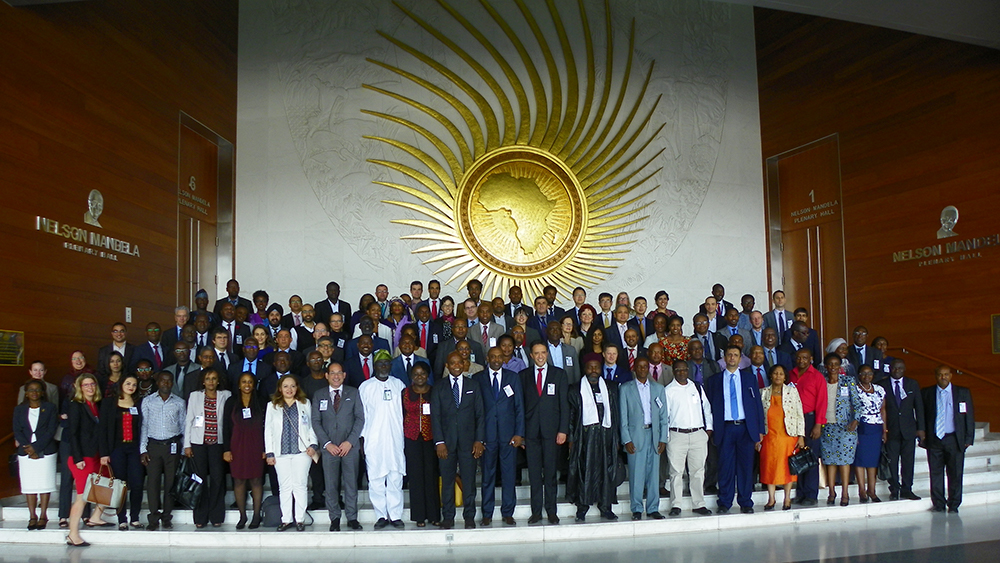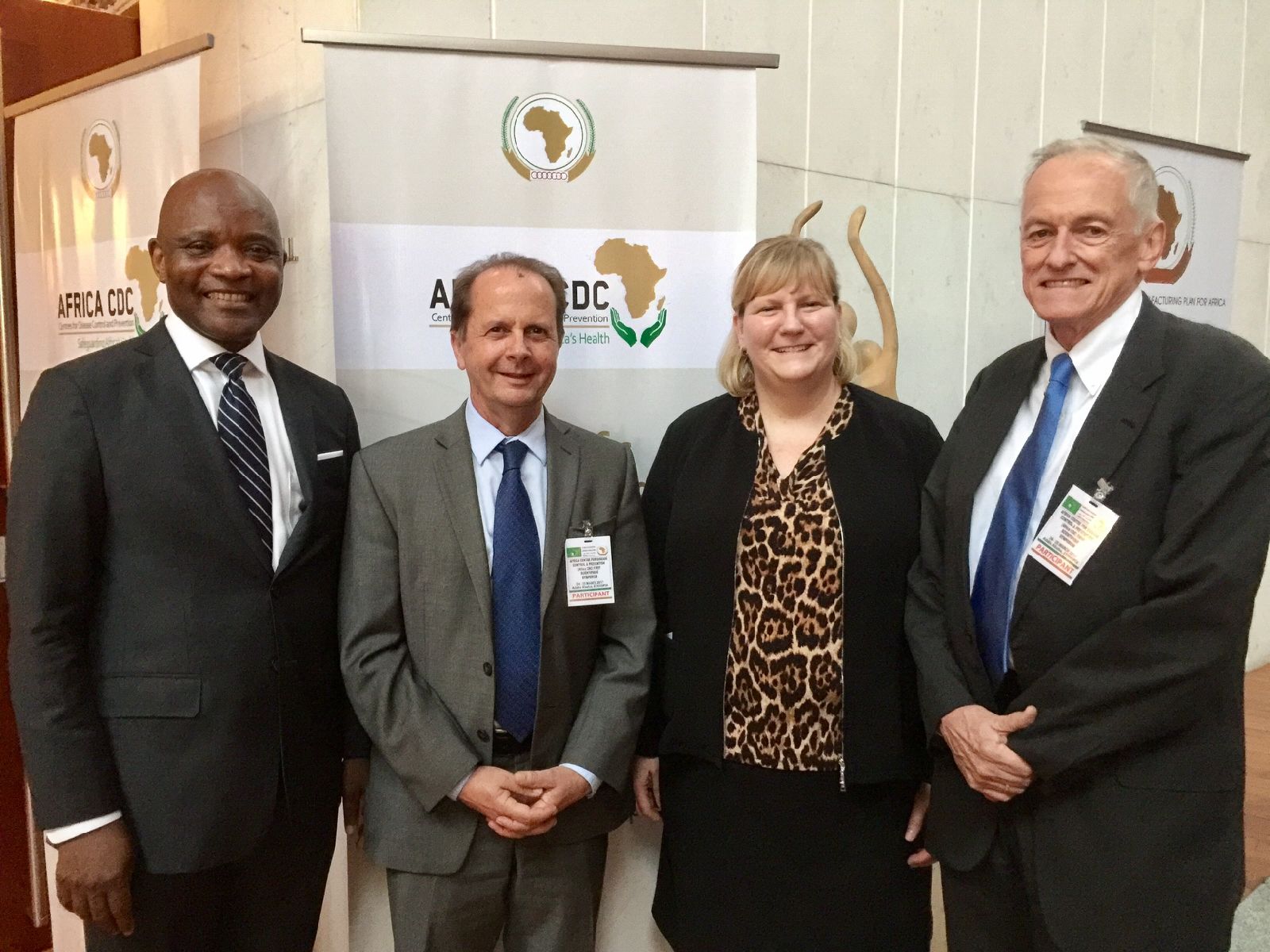Africa CDC: Improving Disease Detection and Emergency Response on the African Continent

Participants gather during the Africa CDC Scientific Symposium in Addis Ababa.
Disease knows no boundaries. What affects one country can quickly become a widespread crisis across a region.
Many factors play into the rapid spread of disease. Urban population centers are expanding, and the world is more connected than ever through travel and trade. Furthermore, a single country’s health system may be quickly overwhelmed by cross-border or regional events.
Epidemics can be stopped faster when countries are aware, prepared, and – most of all – coordinated. It is a lesson we learn time and again, and which was brought into focus more clearly than ever by the recent Ebola epidemic in West Africa. This is why the Member States of the African Union joined together to create the Africa Centres for Disease Control and Prevention (Africa CDC). As a key part of the mission to promote an integrated, prosperous, and peaceful Africa, Africa CDC is dedicated to helping countries across the continent protect against health emergencies.
A Clear Mission
The notion of an Africa CDC came about as African Union Member States recognized the need for a continent-wide public health agency to safeguard Africa’s health and better support countries. Africa CDC will offer strategic direction and technical support to African nations as the continent continues to grow its ability to prevent, detect, and respond to disease threats.
Africa CDC officially launched on January 31, 2017, at the African Union Summit in Addis Ababa, Ethiopia. Dr. John Nkengasong serves as the first Africa CDC Director.
Africa CDC works with Member States, the World Health Organization (WHO), and other partners to reduce sickness and death by strengthening public health according to five strategic pillars:
- Surveillance and disease intelligence
- Information systems
- Laboratory systems and networks
- Emergency preparedness and response
- Public health research
Along with a newly established Emergency Operations Center in Ethiopia, five Regional Collaborating Centers in Egypt, Nigeria, Gabon, Zambia, and Kenya will allow the Africa CDC to work more closely with Member States on the public health challenges specific to each geographic region. The regional centers will have laboratory and diagnostic capacity to quickly identify both known and unknown pathogens – key to stopping outbreaks early and close to the source.
Looking toward the future

(From left to right) First Africa CDC Director, John Nkengasong, former CGH Director, Tom Kenyon, CGH Director, Rebecca Martin, and former CGH Director, Kevin de Cock.
In March 2017, Africa CDC unveiled its five-year strategic plan to strengthen Africa’s public health systems. Dr. Nkengasong says of the plan: “The strategy provides a clear roadmap for the Africa CDC to deliver on its key mandate to provide timely, actionable, and continent-wide surveillance and disease intelligence data; rapid deployment of coordination and technical expertise to respond to outbreaks, health diplomacy; and seamless and well-coordinated regional laboratory and surveillance networks across countries.”
We know from experience that strong health systems must be in place before emergencies strike. As infectious diseases continue to emerge across the continent, Africa CDC will lead efforts to detect and control disease threats based on science and policy, protecting both Africa and the world.